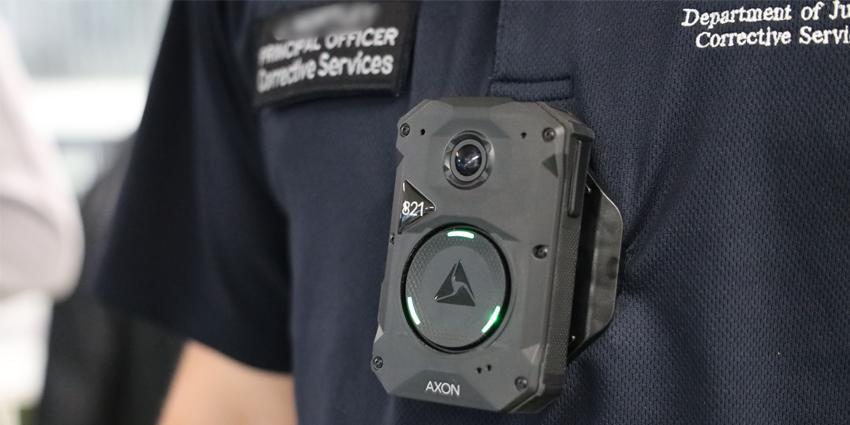
This is the first stage of deploying body worn cameras for all frontline Youth Custodial Officers (YCOs) in Western Australia.
YCOs at Banksia Hill Detention Centre are set to begin wearing the cameras next month and at Perth Children’s Court from September.
Combined with a digital evidence management system, the cameras are intended to de-escalate situations, reduce incidents, and increase transparency and accountability for staff and young people in custody.
Department of Justice staff based at the 24/7 State Operations Command Centre have the capability to view body worn vision live during critical incidents, providing additional support and protection for staff.
The video recordings will also support internal reviews of incidents and be used for training purposes.
“Body worn cameras will contribute significantly to meeting our goal of keeping everyone safe in detention facilities,” Department of Justice Director General Kylie Maj said.
“This is the latest step to secure our facilities so staff can safely give young people in custody the therapeutic care they need,” Ms Maj said.
The introduction of the technology brings WA in line with other Australian jurisdictions and State agencies. However, Corrective Services is the first agency in the nation to use the next generation Axon Body 4 cameras.
“Video capture and digital evidence technologies rolled out in custodial settings around the world have been found to improve safety and security,” Corrective Services Commissioner Brad Royce said.
“After adopting body worn cameras, WA Police reported a 25 per cent reduction in offender complaints about excessive force and unlawful arrests,” Commissioner Royce said. “Similar findings have been reported from other correctional jurisdictions.”
The $1 million pilot project is planned to pave the way for the introduction of body worn cameras in the adult estate.


